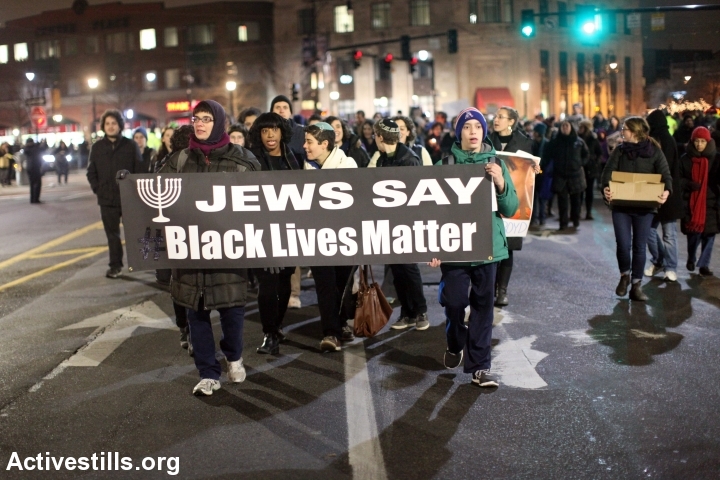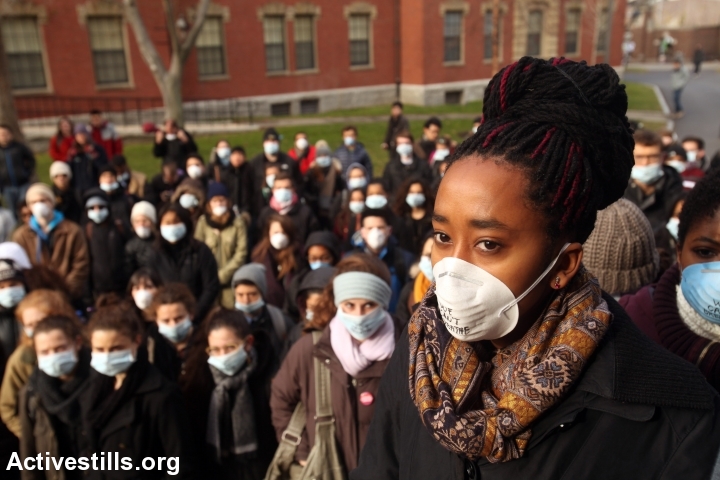The movement can set a precedent by displaying commitment to self-criticism, accuracy, and partnership — values sorely needed in America right now.

The policy platform released by the Movement for Black Lives represents an exciting milestone for a grassroots social movement. But like all first drafts, it gets some things wrong. If the movement is committed to the long haul, it will accept criticism from supportive observers as part of the process, and create a better, more inclusive product in the future.
The MBL movement swept aside fears of clicktivism and slacktivism, in its remarkable evolution from the “Black Lives Matter” hashtag to a swirling conversation of ideas and voices, culminating in real-world action. This looks like human empowerment in the making.
The platform reflects intense organization, investment and commitment of many authors. Its publication itself says, we are not just about tearing down, but re-building. We believe in an America that is capable of changing and serving all of its people fairly, and here are the alternatives we offer. That shows great optimism and faith in the country.
The content of the document itself is uneven, which from my experience with such ambitious group efforts, is only natural.
The detailed analyses are not systematically sourced. One example of information I tried to verify – median wealth held by black and white households – was completely credible, but the document would be stronger if the sources were transparent.
The wide array of proposals, precedents and painstaking lists of background sources are a fascinating mega-supermarket of ideas. Like any good market, some products look more or less appealing, or feasible. The proposals for law enforcement and incarceration reforms, a Constitutional guarantee to free education and racial aspects of environmental policy, contain some hugely important ideas. On the other hand, the Universal Basic Income – a guaranteed income not conditioned on work for all American adults with a supplemental sum for black people as reparations – strikes me as a bad and unfeasible idea that would undermine the basic human and economic principles. But I admit this is the first time I’ve thought about it.
The section on investment and divestment is similarly complicated. It shows a valuable change of thinking about foreign policy. But it contains at least one major flaw, on the Israel-Palestine problem, that is making waves.

The authors link U.S. foreign policy with its consequences on domestic priorities and spending, naming American involvement in Somalia, Kenya, Congo, Libya, Honduras, Colombia, El Salvador, Haiti, Nigeria, Israel and Palestine. In a worldview suitable to the era of globalization and information, the writers portray the message that what happens elsewhere affects everyone, and policy can’t be hidden in ways it once was. US citizens will learn of the policies and their consequences, and bring their discontent to bear upon decision makers.
Then there is the sentence on Israel’s military occupation of Palestinians: “The US justifies and advances the global war on terror via its alliance with Israel and is complicit in the genocide taking place against the Palestinian people.”
The description is wrong. Of the huge and myriad problems with Israeli policy, genocide is not among them. The use of this term reflects what I believe to be a rush-job, and a superficial form of group-think. Adopting slogans of certain activists from relevant social and political circles can’t be a substitute for serious policy thinking.
The inevitable and understandable emotional turmoil is already splitting Jewish groups deeply. Many now question the level of partnership and support that so many Jewish actors are eager to provide. For me, the inaccuracy of that statement raises questions about what other policy prescriptions reflect less than thorough understanding or learning of the issues. Maybe other communities are being similarly riven by something I haven’t picked up on.
Should Jews disavow the document? Or should Jewish groups accept that Black leaders have the right to shape their struggle as they see fit, and as privileged Americans (at present), we must support them uncritically – as Jewish Voice for Peace has by endorsing the document with no reservations?
I don’t believe Jews should dismiss the platform. Like the whole thing, that sentence reflects a first attempt at a new thinking about policy in America – getting some things right, and others wrong. The larger cause is too important to reduce it to a test of how the authors addressed our tiny piece of it – as Michael Omer Man wrote, it’s just not all about us.
Neither can the document be endorsed uncritically. I view that as a disservice to the authors and the movement. MBL was born of American values of critical and self-critical thinking, and dialogue with other communities including when painful. The great civil rights struggle of the 50s and 60s was for integration, not dis-integration. That means a long road of talking, listening, and correcting when needed.

I want to be part of that long haul which is why I won’t give up on something so important so fast. But it’s also why I don’t think the movement can afford a rigid, break-not-bend, approach.
This isn’t limited to the genocide terminology. For example, I personally think the policies are tailored too specifically to ameliorate black poverty and disadvantage with insufficient attention to the systematic disenfranchisement of poor white people, despite explicit solidarity with other marginalized groups such as indigenous people and LGBTQ. Leaving the alienated white demographic out of the picture dismisses their very genuine experiences, and leaves America vulnerable to Trumpism – entrenching “us” against “them.” But that’s just my opinion – it’s not a factual mistake.
By opening itself to many conversations and responding to legitimate criticism, the MBL embraces its allies. Shutting off those conversations means unnecessarily pushing away potential non-black supporters. Worse, it lets them off the hook, when I believe all of America has responsibility to address these challenges.
The movement can set a precedent by publicly correcting the genocide language – displaying its commitment to self-criticism, accuracy and partnership. Those values are sorely needed in America and the movement should be proud to display them.


